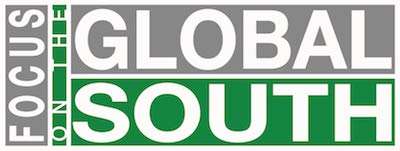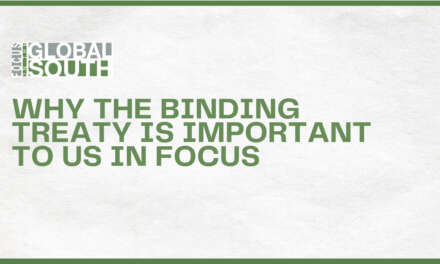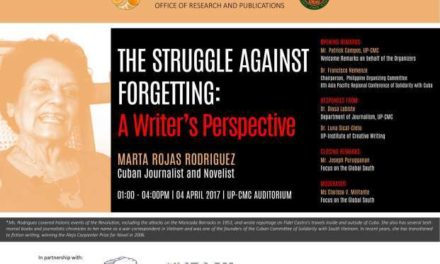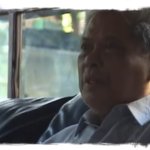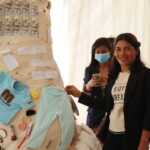Open Letter Response to WTO Director General Pascal Lamy’s Reply to NGOs, dated 17 November 2005, November 30, 2005
Dear Mr. Lamy,
The undersigned trade unions and civil society organization would like to thank you for your response to our letter of, 1 November 2005. While we welcome this public dialogue with you, it is regrettable that for some time, you chose to only publish your response on the WTO website and not our original letter (until very recently). This means that many people were not aware to what issues and concerns you were responding until our letter was also put on the site. We hope that you would agree that a real public debate should present both sides of the story, not just yours. We hope that this response can now be put on the WTO website as well, in the interest of transparency.
We feel compelled to rectify some of what you present as “factual corrections” in your response to us. We respond to your two main critiques and one additional point on WTO process. Your two main critiques to us are:
1) that the text drafted by Mexican Ambassador Fernando de Mateo, Chair of the Special Session of the Council for Trade in Services, is based on a “bottom up” approach that is “inclusive and “that cannot but draw on the views put forward by Members” and that we unfairly criticize this;
2) that “it is nowhere stated, nor has it ever been suggested by the chairman, as you claim, that consensus would be required to delete any of the elements.”
And finally:
3) you claim that it is understood that “the whole draft text at this stage is effectively between brackets” and that until a text is agreed through the support by all members, the interests of the membership are pursued in an “equitable and transparent manner.”
On the first point, we are in agreement that a consensus-based, bottom up approach requires “even-handed treatment by the Chairman of all Members’ submissions.” However, you contradict yourself by claiming to show us that the Chair’s revision has been carried out on the basis of “proposals by Members. In the absence of such proposals, the Chairman refrained from developing any specific language.”
First of all, many developing countries did submit in writing their objections to elements of the October 26 text that still reappeared in the November 3rd Services text. Since then, Chair de Mateo has rectified his actions in the case of numerical targets and indicators by stating that “positions remain too divergent to be bridged by any compromise language.” And this is a step in the right direction.
Unfortunately, the same cannot be said of his treatment of the plurilateral approach and modal objectives cited in Para 7 and Para 1, respectively, of the most recent text. The Chair continues to fail to reflect the contentious nature of these paragraphs. Many developing countries have raised concerns for the following reasons: the current language on the plurilateral approach of negotiations potentially endangers the entire structure of the GATS–a structure that was agreed with great difficulty during the Uruguay Round. Many delegations object to the “mandatory” tone of Para 7, whereby countries requested to make offers “shall enter into plurilateral negotiations.” Objections have also been raised on the prescriptive nature of the language in Para 1 which asks countries to make market access commitments to applied rates in services and to ambitiously remove limitations to foreign providers. The chair, on his own responsibility, has failed to reflect these objections.
Secondly, to insinuate that members must submit proposals as a way to reflect objections and that the text will be developed only on the basis of proposals overreaches the mandate of the Chair. We must recall that even the minimal guidelines developed by the TNC to chairs after the Doha Ministerial only ask the chairs to do the following:
Chairpersons should ensure transparency and inclusiveness in decision-making and consultative processes taking into account the intergovernmental and Member-driven character of the WTO.
Chairpersons should aim to facilitate consensus among participants and should seek to evolve consensus texts through the negotiation process.
Nowhere does it indicate that the Chair should only reflect in a draft ministerial text, formal proposals and not objections, written or oral, to those proposals.
As stated in our original letter and as shown in further written and oral statements made by WTO members since, the issues of a plurilateral approach and modal objectives continues to be contentious with a large majority of the membership. The chair fails to reflect that in his latest draft.
In fact, we are substantiated by the recent statement by members of ASEAN (Brunei Darusalam, Indonesia, Philippines, Thailand and Malaysia) who stated on 24 November in the Committee in Trade in Services Special Session (CTS-SS) that the Chair’s second draft did not "enjoy consensus", and that Ambassador Mateo’s "dismissal" of the views of these members of ASEAN does not "fit together neatly with the claim in the (Chair’s) cover note that the revised draft has been prepared on the basis of submissions by Members".
They explicitly referred to your reply to our open letter, stating that because you assure us of the Chair’s even-handed treatment, ASEAN does not “anticipate a go-ahead of any text unless there was complete commitment from all Members."
Mr. Lamy, these members of ASEAN are not alone in this view. Rwanda, on behalf of the Africa group, Jamaica and Barbados also raised objections on November 24. This was substantiated by African Union Trade Ministers in their Arusha Declaration on Development Benchmarks for the WTO Sixth Ministerial Confernece in Hong Kong, China, November 24th:
Several delegations also raised their objections on November 18, but yet again, their objections have not been reflected in the draft, not even in brackets, nor with optional language that they have clearly proposed. Other countries who have raised clear objections are Venezuela, Cuba, Indonesia, Jamaica and also Antigua and Barbuda, Dominica, Grenada, St. Kitts and Nevis, St. Vincent and the Grenadines, Barbados.
In fact opposition to complementary approaches has been present from the start. Statements made in the CTS on October 17-19 also substantiate this. If you so wish, we can furnish these statements to you. What type of a “bottom up” process is this, when it does not respond to the views of many of its members?
In fact opposition to complementary approaches has been present from the start. Statements made in the CTS on October 17-19 also substantiate this. If you so wish, we can furnish these statements to you. What type of a “bottom up” process is this, when it does not respond to the views of many of its members?
This leads us to your second critique. We are relieved that you agree that there is no common practice of reverse consensus in the WTO.
However, we are not mistaken that the Chair insinuated such a process in the informal session on October 17, 2005. This has been reported to us by trade negotiators and their delegations attending the session. If the WTO practiced greater transparency, the minutes of this meeting could have been publicly available so as to verify these observations. Until that time, you will have to accept that Brazil, Malaysia, Rwanda, Kenya, Thailand, Uruguay, Barbados, Philippines, among others, objected to benchmarking being introduced into the text without brackets. To their objections, the chair responded, that he was not in a position to leave out any proposals by members, though he could add elements on his own responsibility. It is to this statement and the practice that evolved in these informals that we were objecting. His statement at that session indicates that he could not take out proposals by members. We are glad to see that he has since recognized the procedural problems related to that attitude and for deleting “numerical targets and indicators” from the current text. However, he has not extended this judgment to other highly controversial parts of the text.
Finally, we must address your claim that the whole text is in brackets until full agreement. This statement by you side-steps significant on-going problems of transparency and inclusiveness.
Let us remind you that the idea that the entire text is ‘considered’ to be in brackets until agreed has been contentious amongst the membership and continues to be an on-going debate. The concern over how these texts are crafted is based on a number of past and current experiences in which the misuse of the powers vested in chairs results in texts biased towards the major economic powers in the WTO. Members are then expected to accept this draft because it is drafted by the chair “on his [or her] own responsibility” and is understood to be in brackets.
On November 18, Venezuela responded to frustration arising from this practice: “In the face of all these expressions of disagreement, your answer has always been the same, that this text is under your own responsibility. In this room, we should ask the question, until where does your responsibility extend?”
Regrettably, these problems have continued since 1999 Seattle WTO Ministerial, where delegations first vented their frustrations at draft texts emerging from green rooms that did not represent the viewpoints of a large majority of the membership. This contributed to the famous Seattle Ministerial collapse. These problems continued in the run up to Doha and are documented by various country statements prior to the Doha text and after Doha through papers submitted to the General Council on the preparatory process in Geneva (See for example, WT/GC/W/471). And they were also an issue prior to Cancun.
Prior to the Cancun Ministerial, the Derbez text was forwarded on the chair’s own responsibility and many of its parts were rejected by a large majority of countries. This is why the G20 asked that their own text be submitted as part of the Derbez text to trade ministers in Cancun. This process repeatedly failed process has been repeated again with the recently prepared Services text.
You understand very well the norms of the use of brackets in negotiations in other international bodies. The WTO continues to evade these norms whereby differing opinions are reflected through a set of alternatives placed in brackets and transparently negotiated at a ministerial by projecting the text on an overhead screen, where all members can participate equally in the negotiations. The WTO refuses to even consider this form of a more democratic and transparent process of negotiations. Therefore, this text, like many other negotiating texts in the WTO, does not clearly indicate through brackets where conflicting opinions exist, and dangerously errs on the side of more influenced members. While dubbing this a development round, it ignores the views of many developing countries with critical development concerns.
We believe that your response to our letter contains some serious misrepresentations of our arguments. We have raised a legitimate concern in relation to rules and procedures applied to the crafting of a draft ministerial text which is based on the interventions of many WTO members themselves. Unfortunately, your response fails to address these concerns.
Crafting a text on one’s own responsibility in the WTO, as history has shown, has not led to either inclusiveness or transparency thus far. We have raised these concerns and proposed recommendations in an extensive memo addressed to your predecessor and yourself in your capacity as EC trade commissioner, entitled Memorandum On The Need To Improve Internal Transparency And Participation In The WTO prior to the 5th WTO Ministerial in Cancun. We enclose the Memorandum mentioned above. It is our view that many of the mechanisms that we had proposed in the run up to Cancun could have helped to avoid some of the problems that arose there, but these were set to one side. It would be unfortunate if that were to happen again.
We look forward to further discussions on this matter.
Sincerely,
1. Africa-Europe Faith and Justice Network (AEFJN), Belgium
2. Alliance of Food Sovereignty Campaigns (AFSC), Bangladesh
3. All Nepal Peasants’ Association, Nepal
4. Andras Hrabak, Hungary
5. Attac Austria
6. Attac France
7.Attac Quebec
8. ATTAC Spain
9. Berne Declaration, Switzerland
10. Campaign for the Welfare State, Norway
11. CNCD-11.11.11, Belgium
12. Campagna per la Riforma della Banca Mondiale (CRBM), Italy
13. The Development GAP (Washington, DC), US
14. Declaration of Salzburg for Development in Solidarity
15. Documentation for Action Groups in Asia, (DAGA), Hong Kong
16. Dutch GATS Platform
17. Encuentro Popular-Costa Rica
18. Fair, Italy
19. Focus on the Global South, Thailand
20. Focus on the Global South, India
21. Friends of the Earth, England, Wales and Northern Ireland
22. Institute for Agriculture and Trade Policy (IATP), US
23. International Gender and Trade Network (IGTN)
24. Institute for Global Justice (IGJ), Indonesia
25. International Union of Food, Agricultural, Hotel, Restaurant, Catering, Tobacco and Allied Workers’ Association (IUF)
26. Jagrata Juba Shangha (JJS), Bangladesh
27. Karmojibi Nari, Bangladesh
28. Oakland Institute, US
29. Oxfam International
30. PAPDA (Plate-forme haïtienne de Plaidoyer pour un Développement Alternatif) Haïti
31. Public Citizen, US
32. Public Services International (PSI)
33. Roba dell’altro mondo (ROBA), Italy
34. Stop the New Round! Coalition, Philippines
35. Third World Network (TWN)
36. TradeWatch, Italy
37. Unité de Recherche, de Formation et d’Information sur la Globalisation (URFIG), Belgium
38. War on Want, UK
39. World Development Movement, UK
40. World Economy, Ecology & Development (WEED), Germany
41. WIDE (Women in Development Europe)
42. X minus Y Solidarity Fund, the Netherlands
2. Alliance of Food Sovereignty Campaigns (AFSC), Bangladesh
3. All Nepal Peasants’ Association, Nepal
4. Andras Hrabak, Hungary
5. Attac Austria
6. Attac France
7.Attac Quebec
8. ATTAC Spain
9. Berne Declaration, Switzerland
10. Campaign for the Welfare State, Norway
11. CNCD-11.11.11, Belgium
12. Campagna per la Riforma della Banca Mondiale (CRBM), Italy
13. The Development GAP (Washington, DC), US
14. Declaration of Salzburg for Development in Solidarity
15. Documentation for Action Groups in Asia, (DAGA), Hong Kong
16. Dutch GATS Platform
17. Encuentro Popular-Costa Rica
18. Fair, Italy
19. Focus on the Global South, Thailand
20. Focus on the Global South, India
21. Friends of the Earth, England, Wales and Northern Ireland
22. Institute for Agriculture and Trade Policy (IATP), US
23. International Gender and Trade Network (IGTN)
24. Institute for Global Justice (IGJ), Indonesia
25. International Union of Food, Agricultural, Hotel, Restaurant, Catering, Tobacco and Allied Workers’ Association (IUF)
26. Jagrata Juba Shangha (JJS), Bangladesh
27. Karmojibi Nari, Bangladesh
28. Oakland Institute, US
29. Oxfam International
30. PAPDA (Plate-forme haïtienne de Plaidoyer pour un Développement Alternatif) Haïti
31. Public Citizen, US
32. Public Services International (PSI)
33. Roba dell’altro mondo (ROBA), Italy
34. Stop the New Round! Coalition, Philippines
35. Third World Network (TWN)
36. TradeWatch, Italy
37. Unité de Recherche, de Formation et d’Information sur la Globalisation (URFIG), Belgium
38. War on Want, UK
39. World Development Movement, UK
40. World Economy, Ecology & Development (WEED), Germany
41. WIDE (Women in Development Europe)
42. X minus Y Solidarity Fund, the Netherlands
